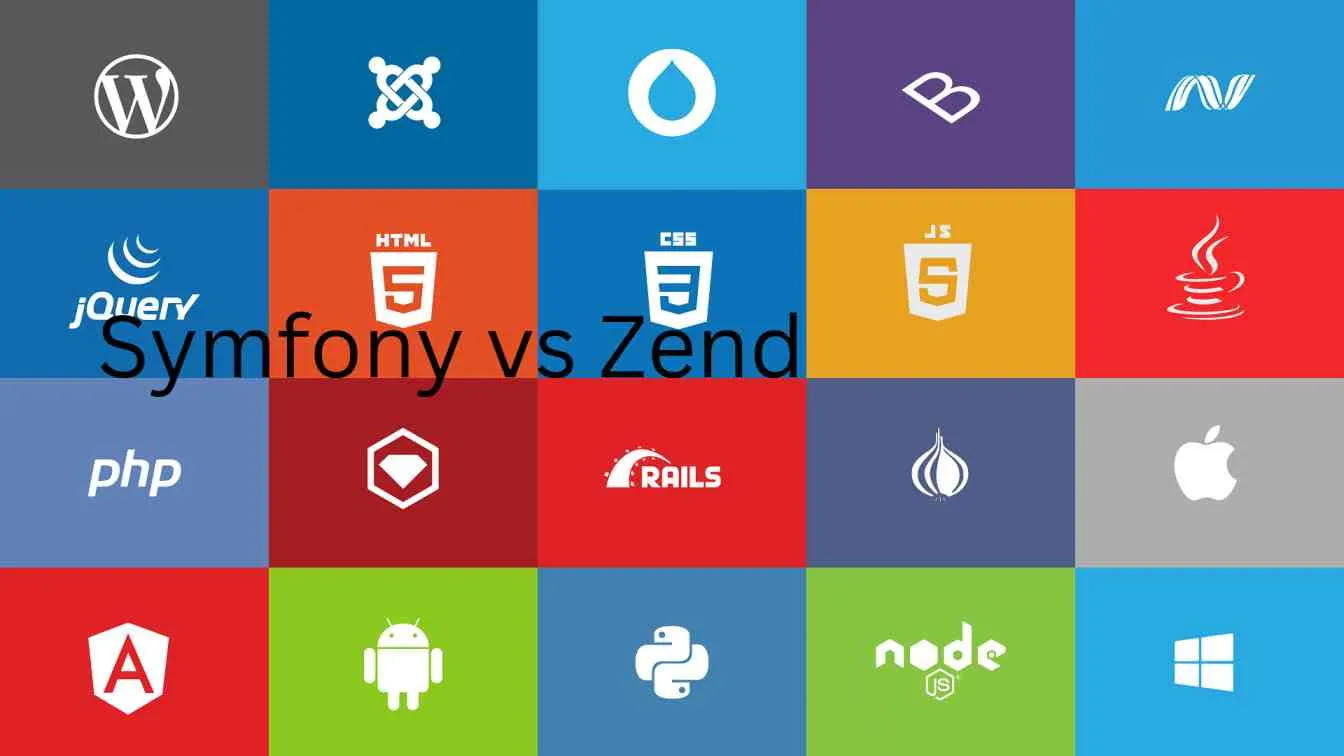Last updated on December 19th, 2025 at 01:57 pm
I speant so many hours comparing PHP framework X when I should’ve just damn well built something. If you are torn between Symfony, Laravel, and Zend (formerly known as Laminas) here’s the straight story I wish someone had told me to begin with.
Table of Contents
Stop Overthinking This Decision
Here’s the deal: all three of these frameworks will make your project happen. I’ve watched developers spend weeks arguing this question when they could have already shipped an MVP. The right question isn’t “which is better?”. It is “which fits your situation right now?”
Here’s the breakdown, based on what actually matters.
Laravel: The Fast Lane
Full disclosure: Laravel feels like cheating and I mean that in the best way. Do you want to get something up fast and aren’t planning on being at one million users tomorrow this is it.
What I liked: The docs don’t talk down to you. Yep, you can walk the official laravel learning path and have a working app in the same f*ing day. And when you get stuck, there’s likely a Laracasts video demonstrating precisely your problem.
The catch? Laravel uses a lot of “magic” tricks behind the scenes. Me: Every now and again, something just does what it’s supposed to do, for reasons you might never know. That is, until something breaks and you’re digging in framework code to figure out what went wrong.
You will love Laravel if: You are creating a start-up, a SaaS product or anything where time to market is more important than perfect architecture. It’s also awesome if you’ve never used a framework before, the learning curve won’t make you want to kill yourself.
Skip it if: You’re building something big for a large organization. It scales great, sure, but you’ll start battling its opinions.
Symfony: The Professional’s Choice
Symfony is like a gaming laptop to custom built PC. You receive exactly what you put in, and no more, no less.
I gave Symfony a shot after working with Laravel and you know what? The first week was rough. There’s no hand-holding. You should know what each one does and why you are using it. But once it finally clicked, I understood why enterprise teams are so into this thing.
The modular configuration also ensures you don’t suffer from “framework bloat.” Need just the routing component? Grab it. Want to build microservices? Thankfully Symfony Flex makes it much more manageable. And besides, Laravel secretly relies on Symfony components under the hood as it is.
Stuff like stateless CSRF tokens in 7.2 and native PHP lazy objects are simply evidence that Symfony is still driving change lately. The community is perhaps not as big as Laravel, but they’re serious developers who are solving real problems.
Who’s going to enjoy Symfony: You’re building complex applications, or APIs, or at the enterprise-levelicorn it up! This is where you start if your project needs to last five years, and maybe handle serious traffic.
Skip it if: You’re new to frameworks, and/or not doing something particularly complex. At a bare minimum, the setup time will slow you down when you need to be shipping.
Zend (Now Laminas): The Old Guard
Here’s where it gets weird. When some corporate evolution made the Zend Framework Laminas, whoop-de-doeh? Most developers moved on.
That’s not to say it’s bad just … hard to generalize. If you require rock-solid PSR compliance, particularly more middleware-heavy than not, or are supporting legacy code Laminas is a good pick. If you want learn that and have already extracted the book: The Tutorialspoint one still works!
But let’s be honest: unless your company already has it in place, or you are bidding for government contracts which expect certain standards, you would probably prefer to work with Laravel or Symfony.
Laminas is for you if: You maintain existing Zend Framework projects or develop standards-compliant middleware layers. What I’m describing is the component-based approach you get complete control.
Skip it if: You’re a new reader. The ecosystem doesn’t grow like Laravel or Symfony and finding help online is more difficult.
The Actual Decision Tree
Stop reading comparison charts. Answer these questions:
Building something this month? Laravel. Ship fast, ignore architecture later.
Building something for longevity? Symfony. The up-front learning pays off in maintainability.
Maintaining existing Zend code? Stick with Laminas. Never rewrite, unless you wish to.
Not sure yet? Start with Laravel. You can always switch to Symfony. it uses Symfony’s components anyway!
What Nobody Tells You
This is what was news to me: you can blend these. Laravel runs on Symfony components. You can require Symfony packages inside a Laravel project with Composer. The frameworks are less isolated than comparison charts make them appear.
And by the way, your framework choice matters way less than you think. I have seen horrible laravel apps and gorgeous zend’s. The tool doesn’t write good code, you do.
My Honest Take
If I’m working on a side project or startup? Laravel every time. The speed and ecosystem win.
If I’m building something for a huge client and it’s going to be maintained over the long term? Symfony without question.
If somebody pays me to do stuff on their existing Zend-based system for example? Sure, Laminas is fine.
That’s it. Stop researching and start building. You’ll learn more in a week of writing real dev code than you would in a month of reading comparisons. Choose one, devote yourself to it for at least an entire project, and only then consider whether you’ve made the wrong call.
The best framework is the one you end up using/finishing your project with.
Also Read : Top 5 Palo Alto Networks Competitors
I’m a technology writer with a passion for AI and digital marketing. I create engaging and useful content that bridges the gap between complex technology concepts and digital technologies. My writing makes the process easy and curious. and encourage participation I continue to research innovation and technology. Let’s connect and talk technology!



